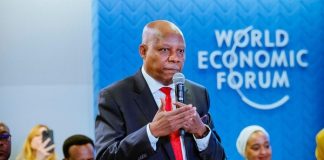UK considers crackdown on foreign students bringing dependents, studying substandard courses to curtail migration influx.
By Naomisophyblog

British prime minister, Rishi Sunak is considering a crackdown on foreign students bringing dependents and studying substandard degrees after net migration to the UK soared to a record half a million.
Downing Street pointed out that plans to bring the total down could include putting up barriers for international students’ dependents and restricting admissions to top universities, UK Daily News reports
This would be in line with proposals being considered by British Home Secretary, Suella Braverman, who has previously complained that foreign students are bringing family members who can piggyback their student visas and frankly supporting substandard courses in under-performing institutions.
It is estimated that around 504,000 more people moved to the UK than left in the 12 months to June 2022, a sharp increase from 173,000 in the year to June 2021.
Read Also:Nurses Across the Borders seeks further partnership with Delta State to mitigate climate change in Niger Delta region
The estimates were compiled by the Office for National Statistics (ONS), which said the jump was due to factors, including visa regulations for Ukrainians and Hong Kong citizens, as well as students arriving from outside the European Union.
Those arriving on study visas accounted for the largest share of long-term immigration from non-EU nationals, at 277,000 or 39% of the total, according to the ONS.
The prime minister’s official spokesman insisted Sunak was fully committed to cutting overall immigration numbers, blaming unprecedented and unique circumstances for the record high.
The official said: “We are considering all options to ensure that the immigration system works, and that includes looking at the problem of dependent students and substandard degrees.”
But such moves could face opposition from other parts of Whitehall.
Chancellor Jeremy Hunt last week insisted immigration is needed to boost growth.
“It takes a long-term plan if we are to reduce migration in a way that doesn’t harm the economy,” he said.
“We recognize that we will need migration in the coming years – this will be very important for the economy.”
The Department of Education could raise concerns about university funding if the number of high-paying international students is reduced.
Migration from non-EU countries, particularly students, drove the rise in long-term immigration, said Jay Lindop, deputy director of the ONS Center for International Migration.
“With the lifting of travel restrictions in 2021, more students have come to the UK after studying remotely during the Covid-19 pandemic,” he added.
















